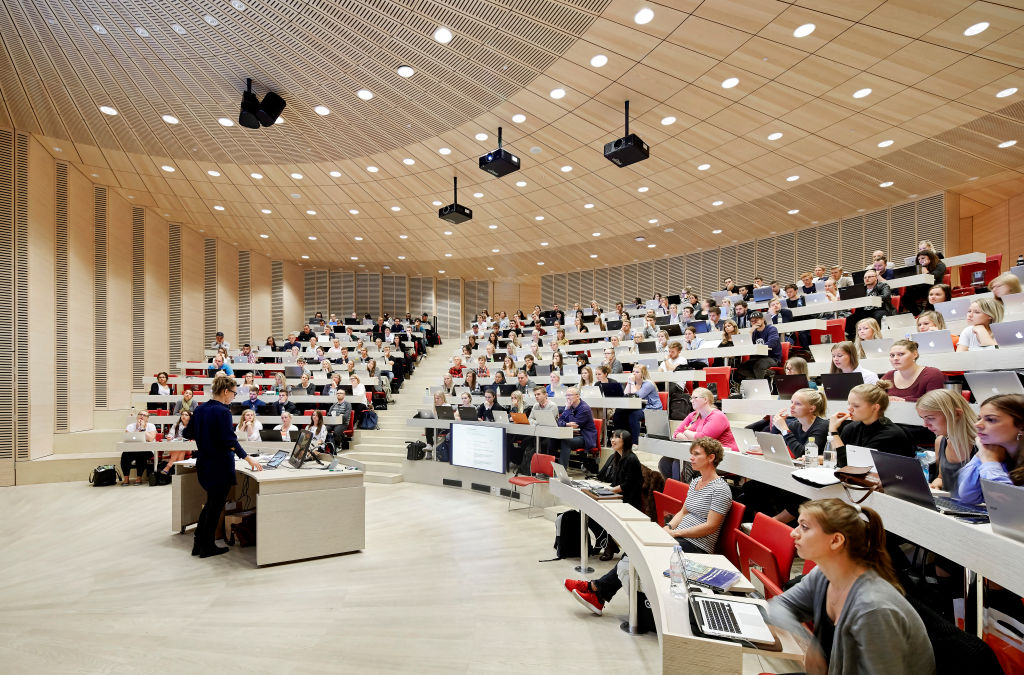Confidence in colleges and universities hits historic lows as value of degrees falls

Last November, we published a column arguing that the value of a college degree is rightly declining.
Student loan debt in the United States is over $1.77 trillion. Hardly any institution in the country places less value on freedom of expression than universities.
And according to new polling data, Americans, by and large, are beginning to agree with us.
The Foundation for Individual Rights and Expression (FIRE) found that trust in colleges and universities has reached an all-time low: Less than a third of Americans have “a great deal” or “quite a lot” of trust in higher education.
Similarly, a Gallup study reported that the proportion of Americans who “strongly” approve of colleges fell from 57% in 2015 to 36% in 2023.
Survey respondents say U.S. universities have lost “credibility” and the return on investment in higher education has not met their expectations.
A joint venture between RedBalloon and PublicSquare confirmed this belief last year when it conducted a survey of more than 70,000 small businesses on the future of the economy.
According to the study:
– 89% of respondents say that university campuses no longer encourage the debate and critical thinking needed to solve problems.
– 83% of companies said they are either less inclined or see no difference in hiring applicants with a four-year degree from a major university.
– 69% of respondents agreed that university graduates do not enter the workforce with the relevant skills required by the economy and society.
– 86% of companies said they would prefer a candidate with four years of work experience over one with a four-year college degree.
Of course, the poll results would be different if the same researchers had also calculated the opinions of larger, corporate-run US companies. And there are fields – medicine, computer science, engineering, etc. – that require a college degree for admission.
However, these degrees come at a price – both financially and morally.
The country’s most prestigious universities – the Ivy League universities – have spent the past nine months exposing themselves as quasi-indoctrination camps of the Marxist worldview, which divides the world into oppressed and oppressor, leading students and administrators to sympathize with Hamas.
At Harvard and Columbia, a student is more likely to catch a mental virus than anywhere else in society.
Furthermore, a college degree does not guarantee success or a better-paying job. Even the most rigorous degrees—like gender studies—cannot change the objective fact that nepotism and racism (such as anti-white racism) determine your success as much as your degree.
While society instills in young Americans the mindset that those who complete a four-year college degree will be better off, despite the huge debt they must accumulate, vocational students who are not indoctrinated with Marxist concepts continue to succeed.
Plumbers, welders, pipefitters, and carpenters may not have as many followers on X as a journalist who majored in African-American studies and works for Slate. However, these workers make more money, are more in demand, and are less likely to suffer from psychosis.
“We have 7.3 million open jobs right now, most of which don’t require a four-year degree,” Dirty Jobs host Mike Rowe told Fox Business last year. “They require training, they require skill and they require the willingness to learn a sought-after craft.”
Walmart currently offers truck drivers a higher starting salary of $110,000 per year, which is double the average starting salary of a college graduate with a four-year vocational education.
Nevertheless, high school teachers rarely emphasize the value of vocational training.
Far too many students go to university because they think that’s what they’re supposed to do, study some pointless subject, and end up earning a six-figure salary for the government without being worth much on the job market.
We are not telling young Americans not to go to college. We are, however, promoting the idea that a college degree is not the ticket to wealth and happiness that it is sold as.
Fortunately, a higher percentage of Americans now share this opinion than ever before.



